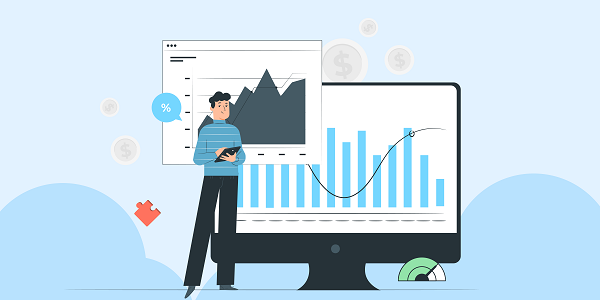Residential Proxies
Allowlisted 200M+ IPs from real ISP. Managed/obtained proxies via dashboard.

Proxies
Residential Proxies
Allowlisted 200M+ IPs from real ISP. Managed/obtained proxies via dashboard.
Residential (Socks5) Proxies
Over 200 million real IPs in 190+ locations,
Unlimited Residential Proxies
Use stable, fast, and furious 700K+ datacenter IPs worldwide.
Static Residential proxies
Long-lasting dedicated proxy, non-rotating residential proxy
Dedicated Datacenter Proxies
Use stable, fast, and furious 700K+ datacenter IPs worldwide.

Web Unblocker
View content as a real user with the help of ABC proxy's dynamic fingerprinting technology.
Proxies
API
Proxy list is generated through an API link and applied to compatible programs after whitelist IP authorization
User+Pass Auth
Create credential freely and use rotating proxies on any device or software without allowlisting IP
Proxy Manager
Manage all proxies using APM interface

Proxies
Residential Proxies
Allowlisted 200M+ IPs from real ISP. Managed/obtained proxies via dashboard.
Starts from
$0.77/ GB
Residential (Socks5) Proxies
Over 200 million real IPs in 190+ locations,
Starts from
$0.045/ IP
Unlimited Residential Proxies
Use stable, fast, and furious 700K+ datacenter IPs worldwide.
Starts from
$79/ Day
Rotating ISP Proxies
ABCProxy's Rotating ISP Proxies guarantee long session time.
Starts from
$0.77/ GB
Static Residential proxies
Long-lasting dedicated proxy, non-rotating residential proxy
Starts from
$5/MONTH
Dedicated Datacenter Proxies
Use stable, fast, and furious 700K+ datacenter IPs worldwide.
Starts from
$4.5/MONTH
Knowledge Base
English
繁體中文
Русский
Indonesia
Português
Español
بالعربية

Healthcare and Proxy: Leveraging Technology for Improved Access and Efficiency
The intersection of healthcare and technology is revolutionizing the way medical services are delivered and accessed. Proxy services, in particular, are emerging as a valuable tool in the healthcare industry, offering new avenues for improving patient care, enhancing operational efficiency, and ensuring data security. This blog will explore the role of proxy services in healthcare, their benefits, and how they can be effectively integrated into healthcare systems.
Proxy services in healthcare refer to the use of intermediaries or third-party servers to facilitate data transmission and communication between healthcare providers, patients, and other stakeholders. These services act as a bridge, allowing secure and efficient exchange of information while maintaining privacy and confidentiality.
One of the key applications of proxy services in healthcare is in enabling remote access to medical records and information. For example, healthcare professionals can use proxy servers to securely access patient data from different locations, facilitating telemedicine consultations and collaborations. This capability is particularly valuable in situations where immediate access to patient information is critical for making informed medical decisions.
By leveraging proxy services, healthcare providers can significantly improve patient care and access to medical services. For instance, proxy servers can enable patients to securely access their medical records, schedule appointments, and communicate with healthcare providers online. This not only streamlines the process of care delivery but also empowers patients to take a more active role in managing their health.
Moreover, proxy services can facilitate the sharing of medical information between different healthcare institutions, ensuring seamless continuity of care for patients. For example, if a patient needs to visit a specialist at a different hospital, proxy servers can enable the secure transfer of relevant medical data, such as test results and treatment history, to ensure that the specialist has access to all the necessary information to provide optimal care.
In addition to enhancing patient care, proxy services can also contribute to improving the operational efficiency of healthcare organizations. By centralizing data access and communication through proxy servers, healthcare providers can streamline administrative processes, reduce duplication of efforts, and minimize errors in data transmission.
For example, proxy services can automate the process of appointment scheduling, reminders, and follow-ups, reducing the burden on administrative staff and improving the overall efficiency of the healthcare facility. Similarly, proxy servers can facilitate secure communication channels between healthcare providers, enabling real-time collaboration and decision-making, which can lead to more effective and timely patient care.
Data security and privacy are paramount in the healthcare industry due to the sensitive nature of medical information. Proxy services play a crucial role in ensuring the security and confidentiality of patient data by encrypting communication channels, implementing access controls, and monitoring data transfers for any unauthorized activities.
By routing data through proxy servers, healthcare organizations can establish secure connections for data transmission, protecting sensitive information from unauthorized access or breaches. Moreover, proxy services help healthcare providers comply with regulatory requirements, such as HIPAA in the United States, by enforcing data encryption standards and access controls to safeguard patient privacy.
To fully harness the benefits of proxy services in healthcare, organizations need to strategically integrate these solutions into their existing systems and workflows. This may involve partnering with reputable proxy service providers, implementing secure communication protocols, and training staff on the proper use of proxy services.
It is essential for healthcare organizations to conduct thorough risk assessments and compliance checks when selecting proxy service providers to ensure that data security and privacy standards are met. Furthermore, ongoing monitoring and evaluation of proxy services are necessary to identify any potential vulnerabilities or performance issues and address them proactively.
In conclusion, the integration of proxy services into healthcare systems offers a range of benefits, from improving patient care and access to enhancing operational efficiency and ensuring data security. By leveraging technology effectively, healthcare providers can optimize their services, streamline processes, and ultimately deliver better outcomes for patients. As the healthcare landscape continues to evolve, proxy services will play an increasingly vital role in shaping the future of healthcare delivery.
Featured Posts
Popular Products
Residential Proxies
Allowlisted 200M+ IPs from real ISP. Managed/obtained proxies via dashboard.
Residential (Socks5) Proxies
Over 200 million real IPs in 190+ locations,
Unlimited Residential Proxies
Use stable, fast, and furious 700K+ datacenter IPs worldwide.
Rotating ISP Proxies
ABCProxy's Rotating ISP Proxies guarantee long session time.
Residential (Socks5) Proxies
Long-lasting dedicated proxy, non-rotating residential proxy
Dedicated Datacenter Proxies
Use stable, fast, and furious 700K+ datacenter IPs worldwide.
Web Unblocker
View content as a real user with the help of ABC proxy's dynamic fingerprinting technology.
Related articles

Why can't curl download the file
Discuss the common reasons why curl fails to download files, from network configuration to proxy settings, and analyze how to improve the success rate through optimization tools and proxy services. Learn how abcproxy helps efficient data transmission.

How to unblock YouTube? How to achieve YouTube Unblocked
Analyze the relationship between YouTube Unblocked's core technology and proxy IP, and explore how abcproxy can help users efficiently access restricted YouTube content through diversified proxy services.

Why do you need a dedicated proxy IP to buy shoes on SNKRS
This article analyzes the core role of dedicated proxy IP in SNKRS snap-ups, explores how to improve the success rate through proxy IP technology, and introduces how abcproxy provides professional solutions for sneaker enthusiasts.